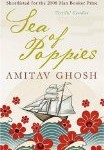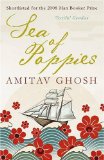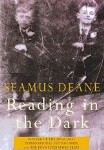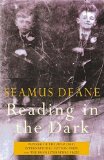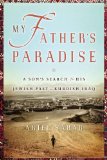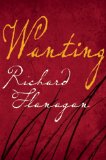Andrew Sharp has mulled over your entries into the competition to win a copy of his book, The Ghosts of Eden, and decided on a winner. I’ll let him take over from here…..
 Thank-you to all who responded to the question I put about writing from the perspective of someone from a different culture.
Thank-you to all who responded to the question I put about writing from the perspective of someone from a different culture.
We are fond of saying that everyone on the planet, whatever their background, has a shared humanity. This cannot relate to a shared way of seeing things. We can’t even be sure how our closest friends see their world: their purple, may be your crimson, the trinket you love can look to them like the last word in tat, what they think of as being honest you see as being insensitive. Our common humanity relates not to our perceptions but to our emotions: fear, impatience, empathy for others and so on. These feelings are universal whatever our culture, and when they are absent (as in some forms of personality disorder – see Sebastian Faulks’ Engelby) we worry that that person is missing something vital to being human. So a writer trying to portray a character from a different culture from their own should start with that common thread; should lead the reader to share the character’s emotions.
From there on it gets complicated and opinionated. The controversy lies in the way a writer portrays how their character from a different culture sees their world, and how they react to their world. For a long and in depth discussion on this see a blog by Mary Anne Mohanraj, or this by Neesha Meminger.
As an aside, our inclination to stereotype others is so natural to us that it probably had an evolutionary advantage: safest to make assumption that big man with big brow ridge on narrow path ahead of me means danger, rather than gentle giant.
Violet’s comment that when she reads books by non-Indians about Indians she cringes, was telling. ‘…they write what the world expects’ and by world I guess that she is referring to what could be called ‘the majority reader’, who is culturally European and might be referred to as belonging to the ‘default culture’. One day the tables may be turned and the default culture for most readers may be African or Chinese.
I enjoyed J. T. Oldfield’s example from Hamlet about a culturally determined response to a story.
Dorte H. made a perceptive comment about Alexander McCall Smith choosing to write from the distance which humour creates in his novels set in Botswana.
Susan Shearer commented on how writing about another culture helps us to look at ourselves and how we live. This reminds me of a quote from the writer Jean Rhys: Reading makes immigrants of us all. It takes us away from home …
Matthew points out that a writer can certainly breathe life into a foreign character, but only if they have done their research.
Ros makes the astute observation that sometimes outsiders can have the detachment to see things that a native to the culture cannot.
Kristen says that while a clichéd description may have an element of truth the writer must go beyond the cliché and capture the heart and essence of the foreign place and people.
Wendy commented that historical novels depict a culture that may be very different to our own, and get away with it very well, although of course the authors of those novels have the advantage that the representatives of that period cannot answer back – unless that’s what ghosts are trying to do!
Debnance: Mercy? Point taken!
Lori L finds authenticity in a novel essential, and finds that some books written by local UK authors are not even true to the area of the UK that they are set in.
Thanks Kristi H for your comment about the reader’s part in all this. The reader brings their imagination to bear as much as the author.
Teddy also makes an observation about the reader saying that the reader may need to set aside their own cultural pre-suppositions to feel the full force of the story.
So thank-you to you all for your thought-provoking and diverse comments. I wish you could each have a free copy but I can see my publisher’s raised eyebrows (she’s otherwise charming, by the way) so I have to make a choice.
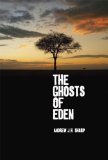

A signed copy is on its way to you, Violet. I found I mulled a lot over your comment about what the ‘world expects to read’. I do hope that you enjoy the novel. My question was a rather heavy, serious question but I think you’ll find the book just gets on with telling a story. There’s a website on the background to the book at www.theghostsofeden.com although I suggest you read the book first before looking at the reading group questions page as it has one or two ‘plot spoilers’.
Congratulations Violet!
Let me know your address and a copy will be on it’s way to you very soon!
I’d like to thank Andrew Sharp for taking the time to judge this competition. I wish him all the best with the book – it deserves much more recognition than it is currently getting.
If you weren’t lucky enough to win the competition then please try to find a copy of The Ghosts of Eden – it really is good!
 The Blog Improvement Project task this week is:
The Blog Improvement Project task this week is: